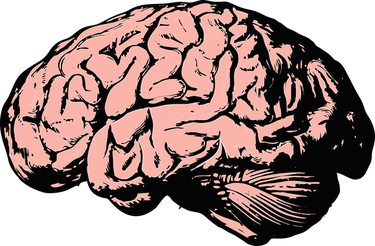
Brain injury cases are a big deal. They’re complex for many reasons. The injuries aren’t always as obvious as they are in other types of injury cases, but they are just as real and just as costly for victims. The compensation brain injury victims seek in personal injury claims are called damages, and they are categorized as “economic” and “non-economic” damages.
Economic damages are mostly self-explanatory. The financial consequences of a brain injury include medical bills, lost income and any other direct cost of an accident or injury. It’s when a victim needs to determine non-economic damages that they assume the process is more abstract. How does one quantify pain or suffering? How can you put a price on the impact an injury has on your life?
From an attorney’s perspective, non-economic damages are determined by precedent and by the real impact these injuries have on the lives of clients.
“Non-Economic” Damages is a Poor Choice of Words
“Non-economic” damages is the term used in the legal community, but it’s not a fair representation of the costs facing brain injury victims. If you’ve ever lived with debilitating pain, you know that there are clear financial consequences of your suffering.
Pain, depression, anxiety and post-traumatic stress have major implications in the lives of an accident victim. Let’s look at two common and closely connected “non-economic” damages: pain and depression. Chronic pain is a major cause of depression, and depression, in turn, makes pain worse. It’s a vicious cycle that places a tremendous burden on sufferers, workforces and the healthcare system.
Depression in the United States costs approximately $210 billion per year. Health economics researcher Paul E. Greenberg wrote in Scientific American that for every dollar spent directly treating depression, another “$4.70 is spent on direct and indirect costs of related illnesses, and another $1.90 is spent on a combination of reduced workplace productivity and the economic costs associated with suicide directly linked to depression.”
Greenberg and his colleagues found in their research that depressed people are more likely to lose their jobs and less likely to find part-time work, particularly when the economy is bad. Other research suggests that financial earnings of people with major depressive disorder are far lower than those of non-depressed people.
The depression stemming from a brain injury can lead to other negative health outcomes, including diabetes, hypertension, cancer and cardiovascular disease. All these conditions are expensive to treat and carry their own financial consequences.
To call depression a “non-economic” consequence of a brain injury is to dramatically misrepresent the financial costs of a brain injury victim’s suffering. Experienced Indianapolis brain injury attorneys know this. While the inadequate term is one of many used in legal jargon, it shouldn’t keep a brain injury victim from receiving significant compensation for the very real consequences of their injury.
“Non-Economic” Damages is a Distinction for Lawyers, Not Victims
If you’ve suffered a serious brain injury and are seeking compensation for the costs you face, it’s important not to get too hung up on distinctions like economic versus non-economic damages. If you find the right attorney who understands the challenges you face, you can be sure that they’ll give all your damages the attention they deserve.
Attorneys know how much is commonly requested in non-economic damages. They use these precedents, but they don’t rely them at the expense of their client’s individual needs. Skilled attorneys who know their way around brain injury cases will know how to determine how much their client is owed. In some cases, these matters are resolved via settlement, while others go to trial where juries often determine how much an injured person is owed.
If you or a loved one has suffered a serious brain injury near Indianapolis, make sure you find an attorney who is familiar with brain injury cases. These claims deserve a specialized approach, so don’t hesitate to ask the attorney about their experience with brain injury cases.
Attorneys with a track record of success will be able to point to specific examples of cases they’ve handled. If you’re unsure of whether an attorney is the right fit for your case, contact the attorney you’re considering, to find out whether they offer free consultations. Many personal injury attorneys meet with potential clients at no cost to learn more about the case and offer a free initial assessment.
A free consultation doesn’t just give you the opportunity to hear an attorney’s assessment; it also offers a potential client the chance to see whether the attorney is right for their brain injury case.
